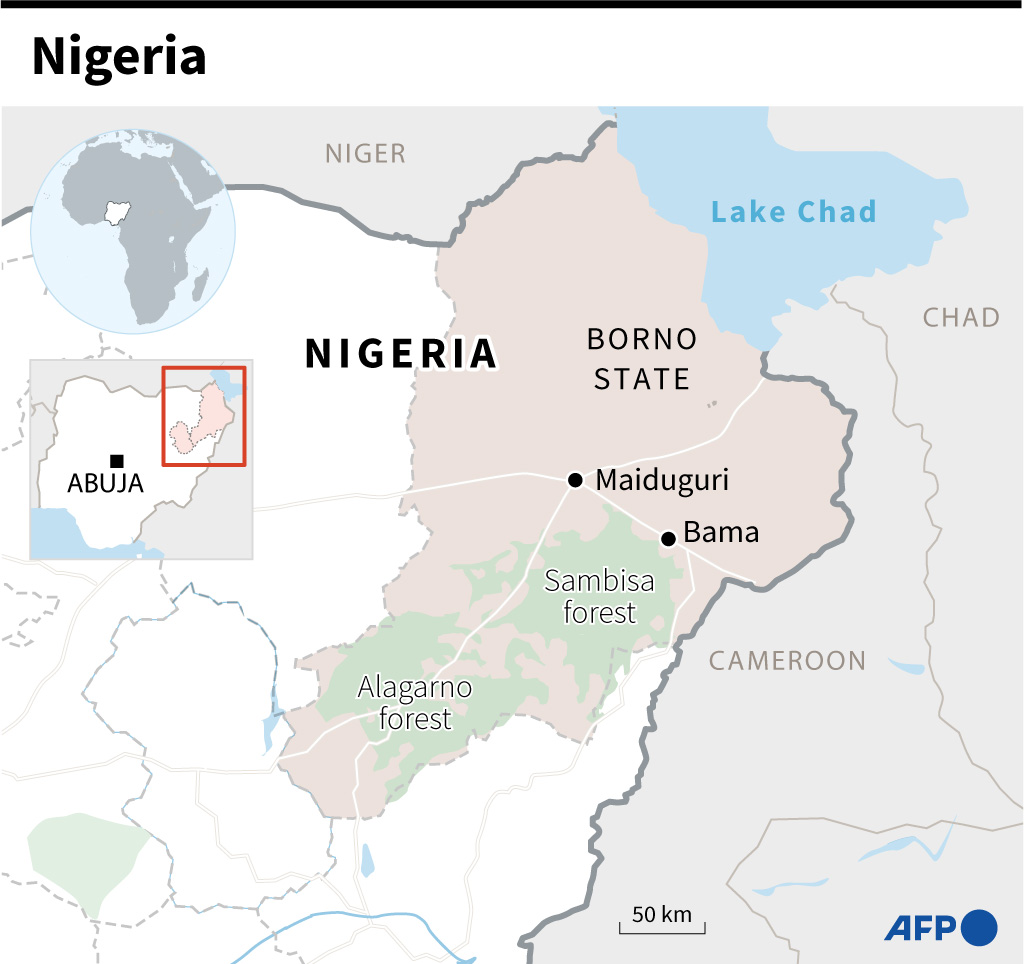Niger’s army has claimed to have killed Boko Haram leader Ibrahim Mahamadu, alias “Bakura”, without providing evidence, prompting caution from experts and a denial from the jihadist group.After its founding in neighbouring Nigeria in the early 2000s, Boko Haram achieved worldwide notoriety by kidnapping more than 300 schoolgirls in Chibok, in the country’s northeast.Much remains murky about Bakura’s supposed death, which, if true, would deal a blow to the Islamists, whose insurgency has spread to Cameroon, Chad and Niger. – Death rumours -In 2009 Nigeria’s army captured and killed Boko Haram’s founder, the radical preacher Mohammed Yusuf.The group’s later leaders have proved more elusive. Yusuf’s successor, Abubakar Shekau, was claimed dead on multiple occasions, only for the jihadist to pop up again in video or audio messages to tell the world that he was doing well.It took until 2021 for Shekau to finally die while being targeted for capture by the Islamic State West Africa Province (ISWAP) group, which splintered from Boko Haram over ideological disagreements.Niger has previously announced Bakura’s death in 2020, which proved premature, and on Friday one of his close allies called the latest claim “completely false” and “propaganda”.- Rise to the top -After the death of Shekau, whom he served as a lieutenant, “Bakura established himself as the leader of Boko Haram”, a diplomatic source based in west Africa told AFP.”He rebuilt its scattered forces. At that time, the group was out for the count, and he gradually managed to bring it back up,” the source added.”We thought that his faction would crumble after Shekau’s death, but Bakura managed to remake it into a significant player in the northeastern Nigerian conflict, and even in the northwest. He’s a major leader,” said Boko Haram specialist Vincent Foucher at France’s CNRS institute. A former jihadist officer, who has since quit the Islamist group, said “Bakura brought Boko Haram back to its feet thanks to his tact and diplomacy, especially with fighters from the Buduma ethnicity who are especially ruthless and difficult to manage”.- Lake Chad stronghold – In the wake of Shekau’s death, Boko Haram was forced out of its remote former stronghold in the Sambisa forest.But under Bakura’s leadership the group retook territory it had lost to its rivals further north, on the banks of Lake Chad straddling Nigeria, Niger, Chad and Cameroon.”Bakura made a name for himself by leading looting and pillaging raids targeted at the civilian population on the lake’s shores, including on the Nigerien side,” the diplomatic source said.His faction is indeed the most active within Boko Haram, according to a United Nations report in July, which said the group had managed to seize land previously controlled by its rival ISWAP in north Nigeria’s Borno state.”They’re still fiercely fighting with ISWAP and they’ve had big run-ins with the Chadian army,” the diplomatic source said.According to Foucher, Bakura was the brains behind a deadly attack on a Chadian army base in October 2024 that killed around 40 military personnel and triggered a counteroffensive which Chad claims led to the death of nearly 300 jihadists.- Jihadist-plagued west Africa -Both ISWAP and Boko Haram have recently ramped up their assaults on military bases in northeast Nigeria, notably in Borno, the epicentre of the jihadist conflict raging since 2009. Yet Nigeria is far from the only country faced with Islamist violence in the region.Besides Boko Haram in the east, Niger also faces insurgencies by fighters linked to Al-Qaeda or the Islamic State group in the west.Those groups likewise stalk landlocked Mali and Burkina Faso over the border, controlling vast swathes of their territory.The conflict has also begun to creep towards several coastal west African nations, notably Togo and Benin, whose northern areas are often the scene of deadly jihadist attacks aimed at both civilians and soldiers.burx-pid/bdi/sbk/rmb/phz/js
